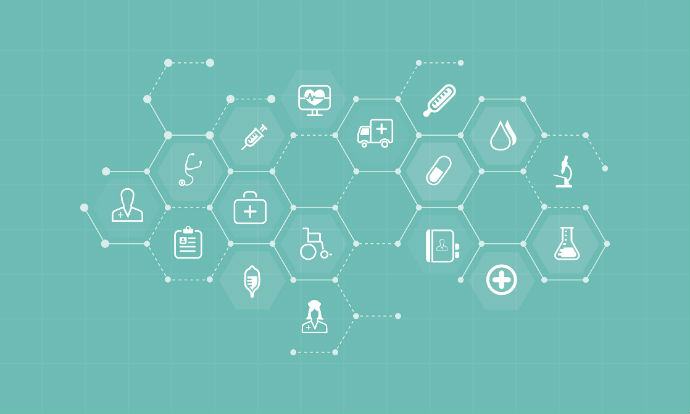Healthcare Blockchain Expected to Rise Steadily Through 2020
Healthcare blockchain is expected to continue to rise as vendors and organizations continue to work towards standardizing the technology.

Source: Thinkstock
- Blockchain is expected to be used by up to 65 percent of enterprises, including healthcare organizations, by 2020 according to a new report by Research and Markets.
Report authors suggest the distributed ledger technology will offer much needed security, especially when it comes to dealing with other organizations. Blockchain eliminates the need for entities to trust the organizations they are working with because they are able to regulate their own transactions.
Blockchain exchanges information between nodes via a shared database without the regulation of a third party controlling the data through a single silo. The technology also leads to the creation of a trusted history of transactions between organizations sharing data.
Each transaction between organizations consists of a block, which holds the data from the current transaction along with a hash linking back to the previous transaction, creating a chain. Every transaction is documented and users cannot go back and alter past data.
Healthcare is currently exploring blockchain, especially as other industries are beginning to adopt it. Earlier this year, a group of blockchain vendors came together to discuss a collective effort to address the challenges facing blockchain and Internet of Things (IoT) deployments in enterprise IT infrastructure.
The group agreed that blockchain standardization is needed in all deployments, regardless of industry, that features security, trust, identity, registration, and verification.
"We called together leaders in blockchain, hardware, software, venture capital, technology, and finance to discuss the barriers to interoperability and security within IoT and how we can complement existing IoT platforms with a blockchain back-end,” Skuchain Co-founder Zaki Manian said in a statement. “We believe there is a real value proposition here for IoT, supply chain, and trade finance."
Healthcare blockchain goes beyond creating trusted connections between healthcare systems. A Deloitte report released late last year focused on how blockchain may be able to place a patient at the center of their personal health information, potentially changing the way organizations exchange EHR data.
Deloitte report authors suggested that participants could join an exchange community rather than retrieving data from a centralized source.
“The current state of health care records is disjointed and stovepiped due to a lack of common architectures and standards that would allow the safe transfer of sensitive information among stakeholders in the system,” report authors stated.
By integrating data into EHRs using blockchain, the interoperability issues plaguing healthcare organizations could be resolved by eliminating dependence on a centralized system.
The report explained that the information flow originating from patients every time they visit any healthcare organization would untangle interoperability and missing EHR information from patients visiting multiple doctors or specialists. Healthcare organizations could direct standardized patient information to a nationwide blockchain transaction layer.
While blockchain displays many benefits for healthcare in particular, it is still a relatively young technology. Vendors are currently working with several organizations to develop blockchain technology to specifically benefit health data exchange.
IBM Watson Health and the Food and Drug Administration (FDA) have signed a collaborative research agreement with the goal of applying blockchain technology to define secure, efficient, and scalable health data exchange.
IBM and the FDA will evaluate the use of blockchain technology in the exchange of owner-mediated data from sources including EHRs, clinical trials, genomic data, and health data collected from mobile devices such as wearables and IoT devices.
The collaboration will study new ways healthcare organizations can leverage large volumes of diverse data produced and collected. IBM suggests that a secure owner-mediated data sharing ecosystem could potentially assist in new discoveries and improved public health.
Blockchain could significantly impact the healthcare industry by establishing secure connections between systems and organizations differently than traditional data exchange solutions.
